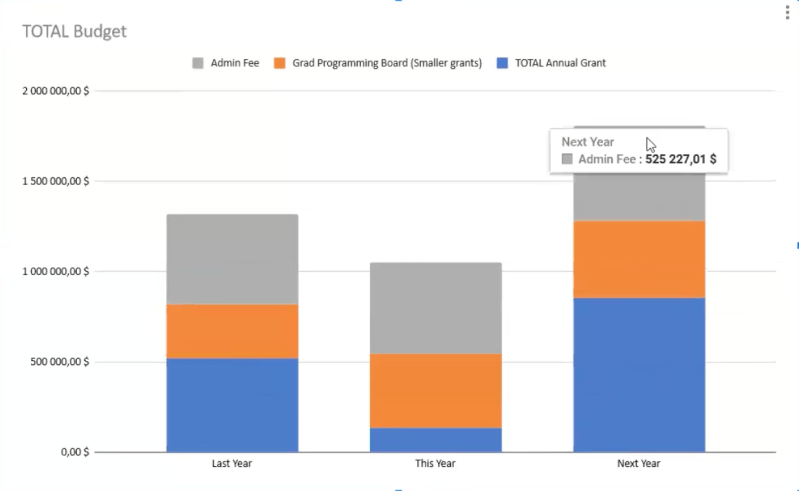Activity fees for graduate students may increase from $38 to over $64 next academic year, after the Graduate Student Council (GSC) approved a 72% budget increase driven largely by rising annual grants.
At Tuesday’s meeting, GSC members unanimously approved the council’s budget for the 2024-2025 academic year, which increased from $1,048,611.38 this year to $1,805,113.13. The bulk of the growth comes from annual grants, which will increase more than sixfold.
More than 43% of the hike in next year’s annual grants total will go to restoring funding for joint student groups — groups with mixed undergraduate and graduate membership — that the council did not fund last year, according to GSC funding committee chair and fourth-year physics Ph.D. student Tom Liu. These groups include the Stanford Speakers Bureau and Black Family Gathering Committee.
Another 28.2% increase will go toward grants for joint groups already funded by the council, and an additional 17.3% will go to funds for new joint groups that were previously deemed undergraduate organizations, such as the Stanford Powwow and Leland Stanford Junior University Marching Band.
Some GSC members raised the possibility of reducing the student activities fee by decreasing annual grant amounts. According to Liu, though, reductions in annual grant amounts will marginally affect the activities fee but be felt very strongly by voluntary student organizations (VSOs). A $3 reduction in each student’s activities fee would lead to a 10% reduction in the annual grant budget overall, he said.
Perry Nielsen Jr. M.S. ’24, ASSU executive director for graduate student affairs, said that while the substantial activities fee increase is “shocking,” it is not as significant compared to other living expenses at Stanford.
“If we do see a reaction from the student body, it could put more pressure on administration to really address affordability at scale,” Nielsen Jr. said of the activities fee increase. “I don’t think we should be suggesting cuts in social activities for graduate students when that’s already something that we are really trying to prioritize.”
Council members agreed that next year’s numbers will set a baseline for the GSC’s budget moving forward. GSC co-chair and fourth-year chemistry Ph.D. student Emmit Pert said this year’s budget amounts were “very anomalous,” since GSC did not “pay for a lot of things that we could have paid for.”
“The increases are pretty large, but they are not as large as they look on paper one year after the other,” Pert said.
“The GSC hasn’t been very active until recently, so there has been no baseline to compare against,” Liu said. He added that the council had only given “a handful of grants” prior to 2020.
In a humorous turn of the meeting, GSC at-large representative and civil and environmental engineering master’s student Leon de Souza proposed a “Bill to Improve Mental Health on Campus” as the last agenda item of the night.
“Uncharacteristic spells of rain have caused a shadow, both literally and metaphorically, on our campus,” de Souza said, followed by laughter from GSC members.
The bill calls on the University to implement a “comprehensive cloud ban” and decrees that “no puddles exceeding 500 milliliters in volume shall be permitted on university campus grounds.” Further, it proposes that excess water be directed into Lake Lagunita to facilitate the community’s enjoyment of water sports on the lake.
“Let’s vote in favor to safeguard our mental health, our academic productivity and the legacy of sunny Stanford,” de Souza said, bringing a smile to many faces.
